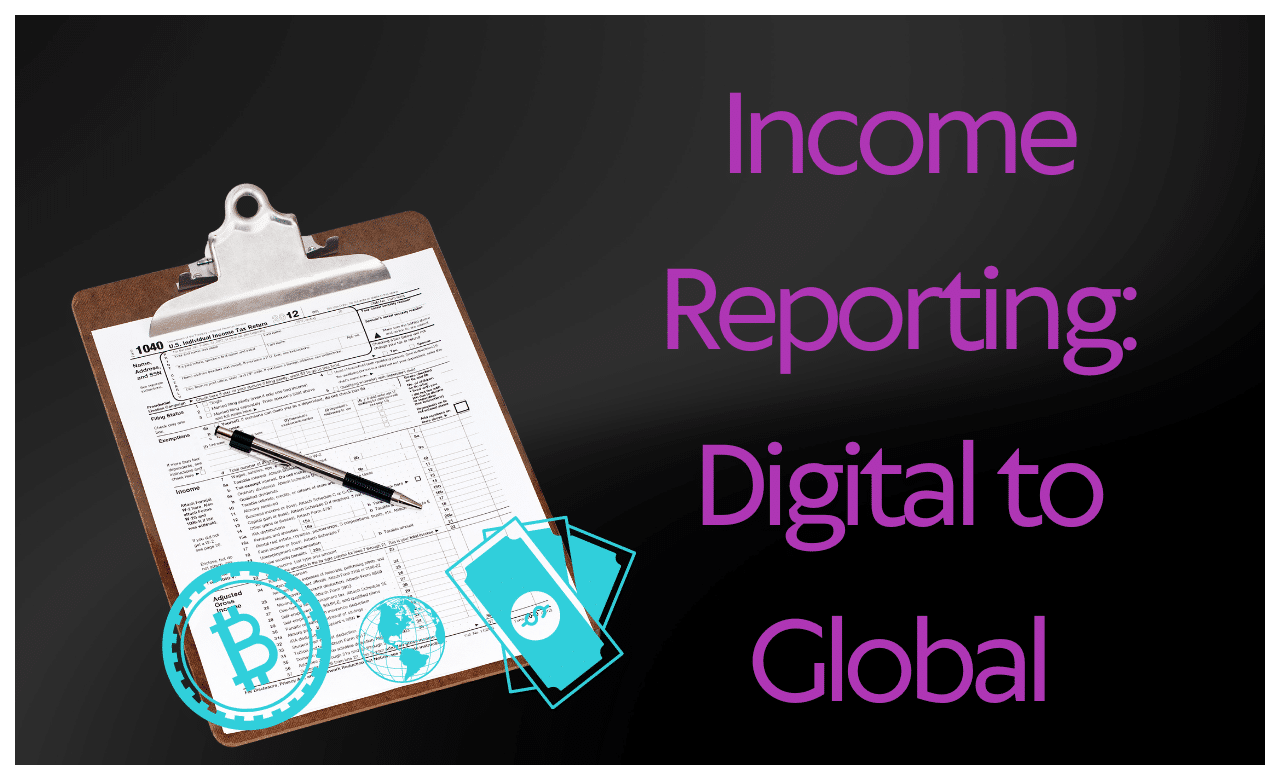Hi, I’m Bette Hochberger, CPA, CGMA. As taxpayers, it’s always important to accurately report all sources of income to comply with tax regulations and avoid penalties. With the rise of the digital economy and gig work, understanding how to report various types of earnings, including digital asset transactions, gig economy earnings, and foreign source income and assets, is more important than ever.
In today’s blog, I’ll get into the details of reporting these income streams to ensure you stay compliant with tax laws.
Digital Asset Transactions
In recent years, digital assets like cryptocurrencies have gained popularity as investment vehicles and mediums of exchange. However, many taxpayers are unsure about how to report earnings generated from digital asset transactions. Here’s what you need to know:
– Capital Gains: Profits from selling digital assets are generally treated as capital gains and must be reported on Schedule D of your tax return.
– Mining and Staking: If you receive cryptocurrencies through mining or staking, the fair market value of the coins at the time of receipt is considered taxable income.
– Record-Keeping: Keep detailed records of all digital asset transactions, including dates, amounts, and values in your local currency, to accurately report your earnings.
Gig Economy Income
The gig economy, characterized by freelance or independent work, has become a significant source of income for many individuals. Whether you’re driving for a ride-sharing service, providing freelance writing services, or renting out property through a platform like Airbnb, here’s how to report your gig economy earnings:
– Form 1099: If you receive income exceeding $600 from a single client or platform, you should receive a Form 1099 reporting that income. Ensure that you report all earnings, even if you don’t receive a 1099.
– Self-Employment Taxes: As a gig worker, you’re considered self-employed and are responsible for paying self-employment taxes, including Social Security and Medicare taxes, on your earnings.
– Deductions: Take advantage of deductions related to your gig work, such as mileage expenses, home office deductions, and business-related expenses, to minimize your taxable income.
Foreign Source Income and Assets
If you have income or assets located outside the United States, it’s essential to understand your reporting obligations to avoid potential penalties for non-compliance. Here are key points to consider:
– Foreign Bank Accounts: Report any foreign bank accounts exceeding $10,000 in aggregate at any time during the year on FinCEN Form 114 (FBAR).
– Foreign Assets: If you own foreign assets with an aggregate value exceeding certain thresholds, you may need to report them on Form 8938, Statement of Specified Foreign Financial Assets.
– Foreign Income: Report all foreign income, including interest, dividends, rental income, and capital gains, on your U.S. tax return, and consider any applicable tax treaties or foreign tax credits to avoid double taxation.
Accurate reporting of income is fundamental to fulfilling your tax obligations as a taxpayer. Whether you’re involved in digital asset transactions, the gig economy, or have foreign income and assets, understanding how to report your income is key to staying compliant with tax laws.
I hope you all learned something new today. As always, stay safe, and I will see you next time.










